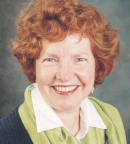
Julia Rowland, PhD
“THE GOOD NEWS is cancer survivors are living longer. The bad news is they’re living long enough to experience the late consequences of curative treatment,” said Julia Rowland, PhD, formerly of the National Cancer Institute and now with Smith Center for Healing and the Arts, Washington, DC, at the 2018 Cancer Survivorship Symposium. “All of those risk factors we’ve seen in the small print and in consent forms, we’re now seeing manifest in clinics,” she noted.
“We know we can’t change a survivor’s gender, race, or family history. However, there are many ways we can intervene to reduce risk if we pay attention and act,” Dr. Rowland said. “We know that if you come in with a high [body mass index], you’re at increased risk for cardiovascular disease, but we can do something about that. If you come in and you’re a smoker, we can do something about that. If you have hypertension at baseline, we can do a better job of controlling that. And potentially we can change outcomes, if we pay attention to these inherent risk factors of individuals coming in for treatment.”
Important Measures
DR. ROWLAND stressed the importance of talking to patients about a healthy lifestyle, particularly in regard to diet, exercise, and smoking cessation. Survivorship care planning is critical, she added.
“It’s not just about the cancer coming back,” she said. “It’s about assessing for long-term effects, chronic effects, and existing physiologic problems—and figuring out how to intervene and address those.”
She reminded attendees that many individuals with a cancer history will not die of their cancer, but rather, of a comorbid condition. “We critically need our primary care colleagues involved in thinking about this,” she added. “All survivors have to be followed for late effects. We know from the data that health promotion after cancer matters.”
DISCLOSURE: Dr. Rowland reported no conflicts of interest.


